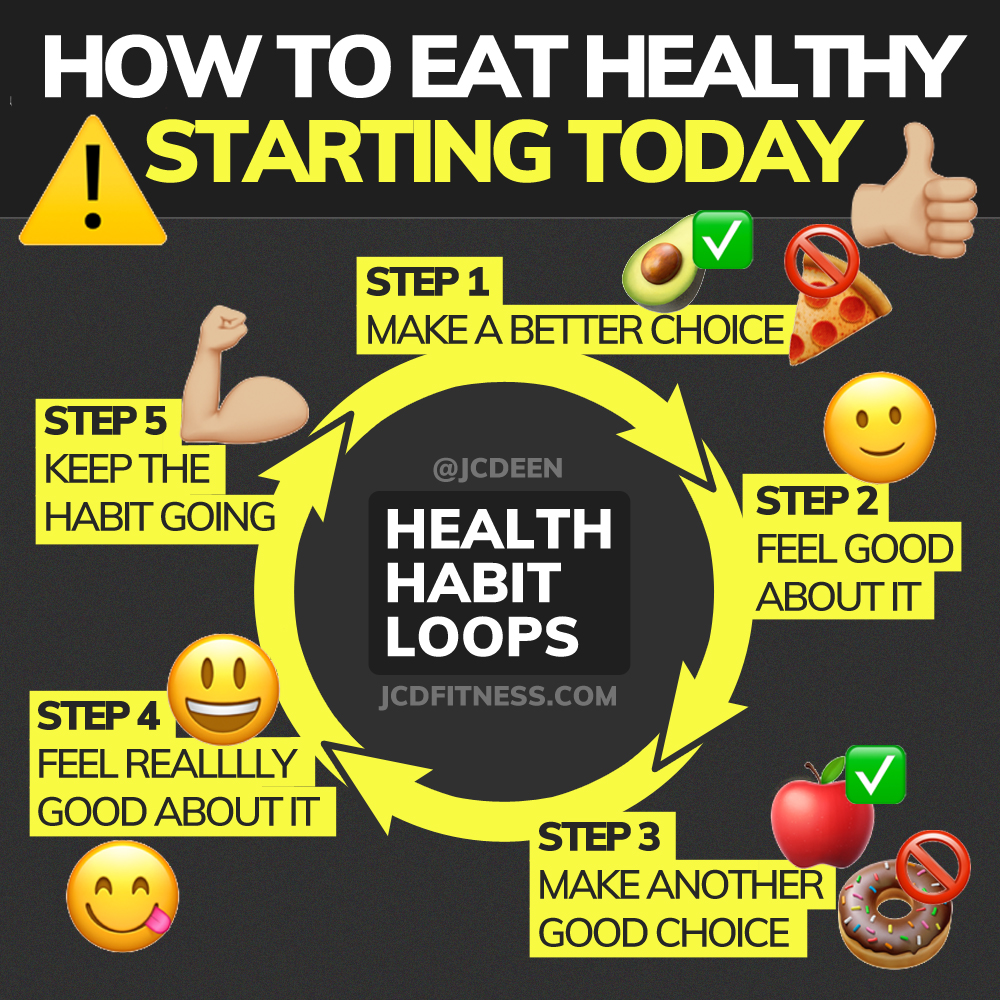
The importance of portion control for weight loss cannot be understated. A larger portion will result in people eating more. A serving is an exact amount of food. You should not exceed this amount. Measurement cups are a great way to control portion size. You can also use everyday objects to remind you. You can use everyday objects as reminders. These guidelines will help to lose weight but not sacrifice your taste buds.
Moderation
Moderation is often misunderstood as a need to avoid overeating. Moderation is not about limiting food intake, it is about personal preferences. For weight loss and good health, eating the right amount of food is essential. This requires discipline and awareness. This is why Portion-Control Containers are so important. These containers help transform healthy foods and produce balanced meals.

Measuring the portions
It is crucial to measure portion sizes in order to achieve your weight loss goals. It is easy to measure different foods with everyday objects and learn the right serving sizes. One serving of fruit, vegetables or other vegetable equals approximately half a woman’s fist. One cup of cooked pasta or rice is equivalent to one tablespoon. One ounce is about 1/3 of a baseball. One tablespoon of nuts or seeds equals approximately two-thirds a pingpong ball.
Using a portion control plate
A portion control plate is a great way to manage weight, even if you don't count calories. A portion control plate helps you see the food you eat. It is also a great way to reduce mindless eating. You can reduce the amount of grains you eat by serving only one portion at a given time. It reminds us of the importance protein and variety in every meal.
Mindful eating
A mindful eating program encourages one to eat slowly, take the time to enjoy their food and chew every bit. This mindful eating slows down digestion, which makes you feel fuller for longer. Even though mindful eating doesn’t mean you have to cut back on indulgences or eat less, it should be the focus of every meal. Small plates should be used to limit portion size. This program is not right for everyone.

Calorie counting
Calorie-counting for weight loss is a great way of losing weight. However, it's not the only way you can control your portions. People often use calorie counting to lose fat, but it isn't suitable for people who suffer from disordered consuming. It can lead to unhealthy relationships with food and even worsening eating disorders. According to one study, 75% of those with eating disorders used an internet tool to track their calories. Additionally, college students are at higher risk for developing an eating disorder due to calorie counting.
FAQ
What can I drink during intermittent fasting in the morning?
Get water in the morning. It will help you feel fuller, faster, and it will give you energy throughout your day. If you want to add flavor, try adding lemon juice or cucumber slices.
How long should I do Intermittent fasting to lose weight?
The answer isn't as easy as it seems. A number of factors need to be considered when determining how many days of fasting are needed for optimal fat loss. These are:
-
Your age. Your age. Intermittent fasting is more difficult for younger people under 40. You have less time to recover each day from fasting. On the other hand, if you're older (over 60), you may find that you don't have enough energy to sustain an extended period of daily fasting.
-
Your current body composition. You'll be most successful if you have lots of muscle mass. Shorter fasting might be more appropriate for you if you have less muscle mass.
-
How physically active you are. To ensure adequate rest between workouts, you might need to extend your fasting period if you exercise frequently.
-
Your past health history. Extra fasting may be necessary for people who have heart disease, diabetes, cancer, or other medical conditions.
-
How well do you tolerate stress? Stressful situations often cause us to eat more. You might need to lengthen your fasting windows in order not to have this problem.
-
Which type of diet you choose. Certain diets, like ketogenic diets, may require even longer fasting periods.
-
The quality of your sleep. Insufficient sleep has been associated with decreased metabolism and increased appetite. It might take some time to find what works best for your needs.
-
How much protein you eat. The ability to stabilize blood sugar levels. Eating more protein can lead to lower insulin levels. This would allow one to fast for longer periods.
-
People who want to gain weight or lose it will need to fast for longer periods of time than those trying to lose.
-
How many calories did you consume during your fasting period? You might lose more fat if your daily calories are lower than those you consume.
-
Your fitness level. Faster people are more likely to be fit, and burn more calories during the day.
-
Your gender. Women tend to have a greater appetite than men, so they might need to fast for longer periods. Women may only fast for 20-30 mins each morning because they have a smaller appetite.
-
Your lifestyle. Do you get enough physical activity? Are you able to exercise several times per week? Does your job involve sitting at a desk all day long? All these factors can have an impact on how much time you should speed.
-
How much do you spend per month on food? Healthy eating doesn't mean you have to spend a lot on groceries. Whole grains are better than white bread and whole fruits are better than candy bars. Lean meats can also be saved.
-
You need to be able to control your hunger. You may not have to fast as often if it is important to eat regularly.
Why Exercise Is Important to Weight Loss?
The human body is an amazing machine. It's designed to move. Move your body to stay healthy, whether you are running, swimming, biking or lifting weights.
Exercise can also help you lose weight and tone your muscles. This makes you feel good both physically and psychologically. It is common to hear people say that exercise is essential for weight loss. But what exactly is it?
-
Exercise improves metabolism. When you exercise, your body uses energy. Every time you move, your heart beats faster, blood flows to your muscles, and your lungs absorb oxygen. All of these activities are energy-intensive. You can burn calories more easily by exercising and increasing your metabolic rate. You can calculate how many calories your body burns by doing physical activity.
-
Exercise reduces appetite. You will eat less when you exercise, and you will eat fewer calories during the day.
-
Strengthen your body through exercise Muscle tissue takes more energy to work than fat tissue. You will be able to lose weight if you have more muscle mass.
-
Exercise releases endorphins. Endorphins are hormones which make you happy. They are released into your bloodstream when you exercise. Endorphins block pain signals from reaching the brain, according to studies. This provides a feeling if well-being.
-
Exercise can boost self-esteem. Exercise is a great way to boost self-esteem. And this leads them to live healthier lives.
You can lose weight by making small changes. Consider adding these tips to your daily routine.
Are there side effects to intermittent fasting
Intermittent fasting has no known side effects. If you don't plan well, you may experience minor issues.
For instance, if breakfast is skipped, you might feel uneasy all day. You might also experience headaches, dizziness, fatigue, and muscle cramps.
These symptoms often disappear within a few hours.
What's the difference between intermittent fasting versus calorie restriction
Calorie restriction means eating less calories than your body requires. Intermittent Fasting is different in that it doesn't restrict calories. Rather, it focuses on eating fewer calories throughout the day.
Intermittent fasting can be more effective as it allows you to eat the foods you love and not feel guilty.
Both methods have pros and cons. You have to decide which method you prefer.
Statistics
- According to a study sponsored by the American Council on Exercise, a person weighing around 140 pounds (64 kg) would burn 108 calories at a 30-minute beginner's Pilates class or 168 calories at an advanced class of the same duration (26). (healthline.com)
- Among women, the increase in metabolic rate was nearly 4%, or 50 more calories per day (14Trusted Source (healthline.com)
- One 6-month study showed that simply doing 11 minutes of strength-based exercises 3 times per week resulted in a 7.4% increase in metabolic rate, on average. (healthline.com)
- One study in 9 active men found that HIIT burned 25–30% more calories per minute than other types of exercises, including weight training, cycling, and running on a treadmill (18Trusted Source (healthline.com)
External Links
How To
How do I lose belly fat fast?
You should know that losing bellyfat is difficult. It takes hard work. But if you follow these tips, you will definitely see results.
-
Eat Healthy Food. It is vital to eat healthy food. Healthy food includes fruits, vegetables, whole grains and lean proteins.
-
Drink Water. Water is good for you. It keeps your body hydrated so that you feel satisfied and full for longer periods. So drink plenty of water every day.
-
Cardio exercises can help you burn more calories and increase your muscle mass. Cardio exercises help to burn more calories, build muscle mass, and improve your cardiovascular health. They improve heart health and metabolism. Cardio exercise should be done for 30 minutes each day.
-
Get enough sleep. A vital part of maintaining good health is sleep. Sleep deprivation can lead to anxiety and stress, which can then cause unhealthy behaviors like smoking and overeating.
-
Reduce Stress. Stress can cause changes in brain chemistry and hormonal levels. Cortisol is a hormone that causes stress to increase hunger pangs and increases cravings for high-calorie food.
-
Regular breaks. Take regular breaks throughout each day. Get outside to take a walk, or take some time to rest. Doing this gives your mind and body time to relax and recover.
-
Avoid Alcohol Consumption. Avoid alcohol consumption. It is high in empty calories and slows down your digestion. If you're trying to lose belly fat, drinking alcohol should be avoided as much as possible.
-
Have Fun